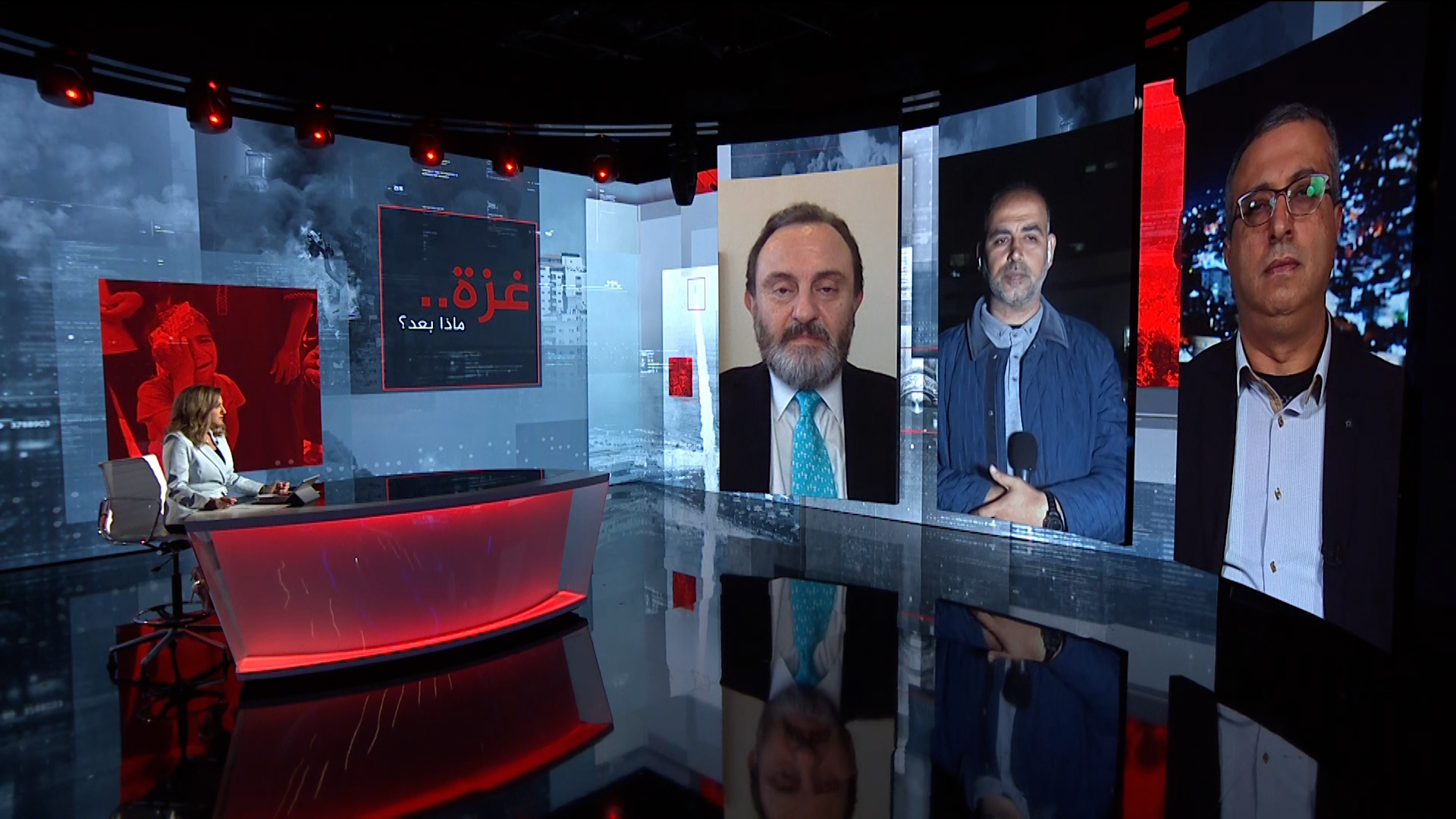play videoplay video
Video duration: 21 minutes 54 seconds 21:54
Political experts and analysts believe that the announcement by the leader of the Yemeni Ansar Allah group, Abdul Malik al-Houthi, to expand his operations by preventing ships linked to Israel from passing through the Indian Ocean would increase pressure on the occupation, move the region to further escalation and expand the circle of war.
The Houthi leader had confirmed in a speech on Thursday evening that his military operations would continue to target ships linked to the Israeli enemy, and "expand them to an extent that the enemy does not expect," adding in this context, "We will prevent the crossing of ships linked to the enemy from the Indian Ocean to the Cape of Good Hope."
During his participation in the program “Gaza... What Next?”, Dr. Hassan Mneimneh, a researcher at the Middle East Institute in Washington, believes that the extent of the expected escalation from the American side is linked to the Houthis’ ability to implement their escalatory threat.
But in any case, the region is heading towards this escalation, according to Mneimneh, which contradicts the American principle of ensuring that the circle of war does not expand, which it sought to achieve by asking Iran to pressure the Houthis to stop their operations, which was not achieved according to the data on the ground.
The researcher at the Middle East Institute considers that the strikes carried out by Washington were proportional to the scale of what the Houthis did, which was a “threat” that has not yet resulted in the expected danger, and therefore the escalation will be determined by the extent of the danger posed by the Houthis’ expansion of their operations.
Washington's power calculations
Mneimneh explains that American calculations when using force should be sufficient to deter the attacker without exaggeration, so that this force does not cause a corresponding escalation, and so that the response does not appear to be retaliation, and as long as the previous response did not serve the purpose, this is what leads to the expectation of a new American escalation in operations.
Mneimneh links the American position towards this escalation to two goals, the first of which is ending the state of Palestinian resistance, and the second is achieving the integration of Israel into the region, especially with Saudi Arabia, which may be seen as an opportunity to initiate forced normalization by demanding compensation for Israel by allowing land lines to compensate for the damaged sea lines.
In turn, Dr. Muhannad Mustafa, an academic and expert on Israeli affairs, believes that Israel views the escalatory steps by the Houthis as a strategic threat, but he pointed out that there is an undeclared agreement between Israel and America that the latter is concerned with dealing with this issue, not Israel.
He believes that this is contrary to the desire of Israel, which is accustomed to responding to any threat directly, especially since there is a state of dissatisfaction within Israel with the American response to the Houthi attacks, as they expected a stronger response, which led to their great disappointment from American politics.
Some of them go beyond accusing Washington that its response is what encouraged the Houthis to continue attacking Israel and imposing a naval blockade on them, according to Mustafa, who believes that the occupation may consider this front postponed until the end of the war on the Gaza Strip.
Strategic threat
Mustafa believes that a war will break out at a later stage between Israel and Yemen, whether secret or public, because Israel sees what the Houthis are doing as a strategic threat to its position in the region and its deterrent power, which it will be careful not to exceed.
The expert in Israeli affairs believes that the Houthi escalation would also increase international pressure on Israel due to the deterioration of the situation in the Red Sea, the Gulf of Aden and the Indian Ocean, but this will not affect Israel’s decision regarding its war in Gaza as long as these attacks do not have a clear and profound impact in the region. .
Meanwhile, Imad Zaqout, a journalist in Gaza, highlighted the Gazan street’s celebration of the Houthi operations, which are very popular within the Strip, pointing out that the main justification for prolonging the war - according to his estimation - is the occupation’s inability to find an alternative to the Islamic Resistance Movement (Hamas) to manage the war. The sector after the cessation of the war.
Zaqout believes that the multiplicity of fronts and the escalation of their participation would exhaust the occupation front even more than it already is, especially in light of the escalation of internal disputes and the growing conviction that the occupation Prime Minister, Benjamin Netanyahu, bases his positions on his personal and political interests without any other considerations.
Source: Al Jazeera

